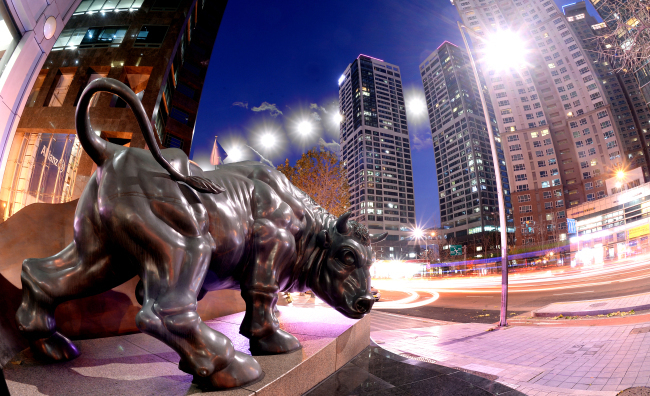Stocks & Bonds
S. Korea’s OTC stock market tops W2tr in transaction volume
The accumulated volume of transactions on South Korea’s flagship over-the-counter securities trading market K-OTC has topped 2 trillion won ($1.7 billion) mark as of Sept. 20.
Korea Financial Investment Association, an operator of K-OTC Market, cited an increasingly favorable condition for securities investors here, such as capital income tax exemptions for retail shareholders of small and medium-sized enterprises.
Moreover, so far, three private companies trading on K-OTC Market were listed on Korea’s main bourse Kospi and six went public on the development board Kosdaq.
 |
“The virtuous role of K-OTC is being highlighted, as more active trading on the market leads to the proper valuation of the (unlisted) enterprises and better reputation,” said Lee Hwan-tae, a Kofia official in charge of K-OTC market.
Kofia has operated Korea’s market for companies that were unable to meet the listing requirements on Kospi or Kosdaq since 2005. Initially called Freeboard, K-OTC got its name when financial authorities redefined its role as one dedicated to unlisted stocks.
Kofia has operated a securities market dedicated to unlisted stock transactions since 2005. Dubbed FreeBoard, the market served as a financing channel for companies that were unable to meet the listing requirements on Kospi or Kosdaq. Kofia rebranded FreeBoard as K-OTC in 2014 as SMEs began to go public on the Konex, a third-tier stock market operated by the Korea Exchange that had opened the year before.
Companies trading on the market include online game "PlayerUnknown's Battlegrounds" developer Krafton, mobile game software maker Kakao Games, coffeehouse chain Caffe Bene, food service firm CJ Foodville, oil refiner Hyundai Oilbank, credit card firm Hyundai Card, among others.
By Son Ji-hyoung (consnow@heraldcorp.com)








